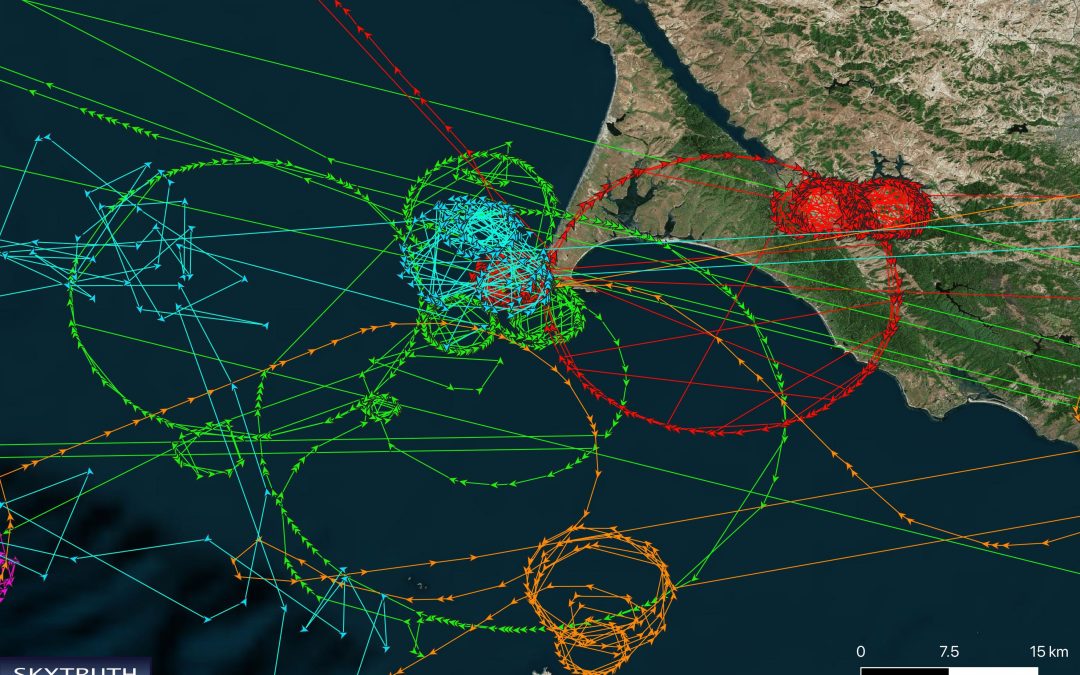Image: Across the globe circle spoofing – SkyTruth
Blog Editor’s Note: Don’t get us wrong, the project reported on below is a good effort and a step in the right direction.
But don’t let the optimistic headline fool you. This effort, which we have reported on before, is to detect GNSS spoofing using commercially available data. So, no new satellites, no new receivers, no new networks.
It does make sense before developing any new capabilities to first see how good the data already out there is.
We can think of two readily available data sources, and we haven’t had our second cup of coffee. How about AIS and ADS-B? Both transmit GPS-derived location information from vessels and aircraft around the world. Blatant spoofing is easily detected in already consolidated data streams for both.
But do we really care that much about blatant spoofing? Most ship captains can tell they are still in the middle of the Black Sea, even if their GPS and AIS report they are at a Russian airport. We hope the same is true for airline pilots.
Seems to us it is the subtle spoofing that should be the real worry. Spoofing that lures trucks to locations ideal for hijacking. That subtly alters a time stamp to falsify a transaction. Or spoofing that places a criminal somewhere other than the scene of his crime.
We wonder if this project will discover any commercially available data to show this kind of activity.
Again, mind the headline. This isn’t a silver bullet but it is a good effort. The results will likely be interesting (not that we are likely to ever see them).
Defense Innovation Unit partners with Orbital Insight to take on satellite spoofing
WASHINGTON — The Pentagon’s innovation hub is working with industry to identify satellite spoofing operations using commercially available data.
Through a new program called Harmonious Rook, the Defense Innovation Unit has partnered with geospatial intelligence company Orbital Insight to develop a platform that can detect Global Navigation Satellite System spoofing. The company announced the contract in a Feb. 10 news release.
“Orbital Insight’s platform will leverage its multisensory data stack, artificial intelligence and machine learning capabilities to alert analysts and operators to potential jamming and spoofing events, techniques commonly used by adversarial actors to cover up activities or sabotage operations,” the company said.
The Defense Department is not alone in its concerns about location data manipulation, as users around the globe are dependent on GNSS-based systems. However, spoofing can have significant national security implications and could impact missions highly reliant on positioning, navigation and timing capabilities.



